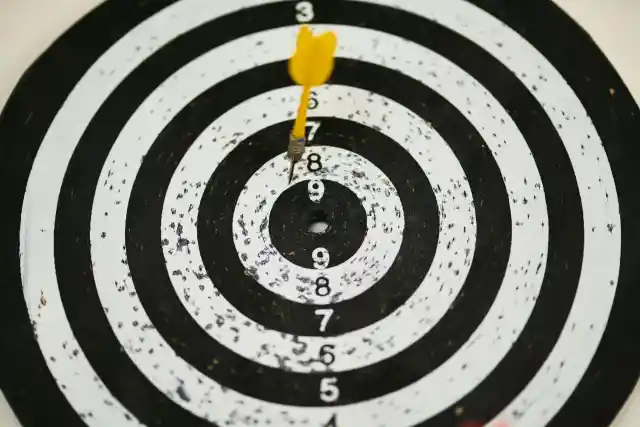One way or another, we are all going to face the dilemma of retiring. It’s a significant life transition, and thinking about it can feel overwhelming at times. But here’s the good news: the earlier you start planning, the more control you’ll have over your future. While you’re busy earning money, remember that it’s not just about making ends meet week to week or month to month. The ultimate goal is to become financially independent, paving the way for a fulfilling retirement. Let's dive into some key things to consider as you prepare for this exciting chapter of your life.
Plan Early


If there’s one thing you can do to set yourself up for a cosy life in your old age, it’s start your retirement planning early. When you begin saving in your 20s bit by bit and cent by cent, over the years, this money will significantly grow, setting you up for years to come. The earlier you start planning, the better. However, even if you are almost about to retire, don't lose hope. Just utilise the time you have and plan accordingly. If you put in enough effort, you'll catch up within no time. If you plan as soon as possible, you will enjoy your retirement and not have to worry about working in your old age to support yourself.
Have Goals


Setting clear goals is essential for successful retirement planning. You need to envision what you want for the future and plan accordingly. If your dream is to travel the world, that means you need to ensure that you plan for retirement with that in mind. Whatever the goals you have for your retirement, write them down and refer back to them often so that you stay motivated as you save your money. When you use your goals to guide your financial decisions, you'll stay mindful of your goals and much sooner than later, you'll reach your goal.
Consider Your After-Retirement Expenses


As you plan for retirement, it’s vital to have a realistic understanding of your expenses. Your expenses will determine the amount of money you need to save to support your lifestyle. If you are an extravagant person and live a life that needs more money to stay supported, then your expenses are more likely to be higher. You should, therefore, sit down and make a detailed budget of your expenses, including any miscellaneous expenses. This budget should then determine the amount of money you need to put aside. This might also encourage you to become more mindful of your current expenses and cut down on them where needed. Make sure to be generous with your budget; after all, you want to enjoy your retirement and not live from hand to mouth.
Have Different Investments


When it comes to retirement planning, spreading your income sources is key. Relying on a single source of income can be risky, especially in today’s unpredictable economy. Look into different types of investments, and spread your finances among them. Each investment comes with its own risk and reward potential so by having a mix of them, you can help safeguard and protect your finances. You, therefore, need to have different investments set up to provide you with more financial stability as you transition into retirement.
Plan for Your Healthcare


Healthcare is one of the biggest expenses that you will face when you retire. This is because as you get older, you are more susceptible to diseases, and because of this, you will end up visiting the hospital a lot more. It's, therefore, very crucial to plan for your medical journey early on. Getting yourself a medical aid card is a great start, but it doesn’t cover everything, and it’s essential to understand what it does and doesn’t include. Consider additional insurance options that will help you cover potential gaps so that you will be sure to have everything covered when you are now in need. That way, you'll be set for your retirement because by planning for these expenses now, you’ll be less likely to face financial strain later. Your health is an important aspect when it comes to ensuring that you are happy in your old age.
Prepare Yourself Mentally


Retirement goes beyond just financial changes and money-oriented issues. It marks a significant life transition that can affect your mental health if you're not mindful. It's important to prepare for not only financial hurdles but your mental health in this new chapter of your life. Plan on how you'll spend your time after you retire so that your life doesn't become monotonous and boring. Plan for activities that will help you stay active and keep up with the social side of things. Many people who retire fall into a web of loneliness so you should ensure that you have a plan to avoid being in this situation once you retire. Look into recreational activities like volunteering, joining local clubs, or picking up new hobbies that interest you. By preparing for this mentally taxing transition, you can make sure that retirement becomes a rewarding and fulfilling time in your life instead of something to fear and avoid.
Be Flexible


As you prepare for retirement, one of the key qualities to develop is flexibility. Life can be full of surprises, and your plans might need to continuously change to factor in the several life problems you will be faced with. Being willing to make changes to your savings goals, lifestyle choices, or even the timing of your retirement can greatly enhance your financial stability. Adopt a mindset that embraces change. This flexibility can open up new opportunities and help you manage challenges more successfully in your old age.
Have an Emergency Account


Having an emergency fund specifically set aside for any unexpected expenses that will arise can provide you with peace of mind and financial security when you retire. This fund should be worth an accumulation of at least 3 months of your expenses. That way you'll be guaranteed to live for a while without stressing yourself if any problem occurs. So as you save up for money that is meant to cushion you in your retirement, also have an Emergency fund aside so that you'll be covered when any inevitable stuff occurs.